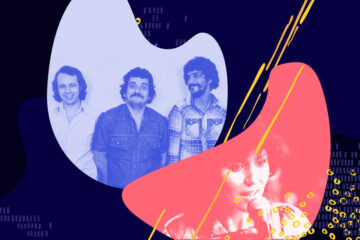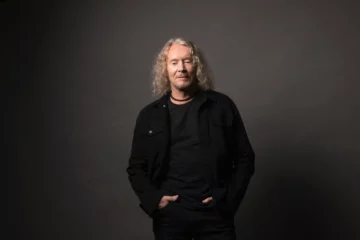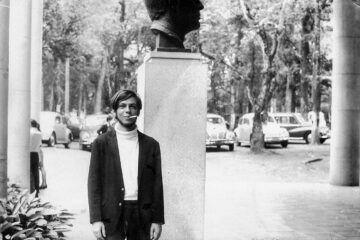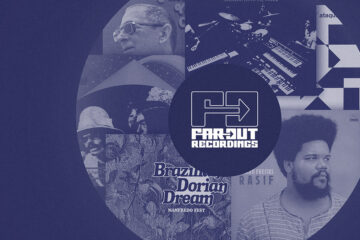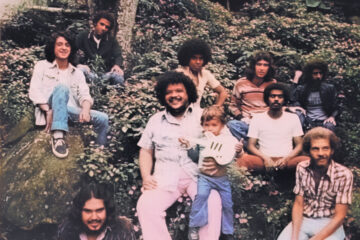In 1972, Brazil is in the grip of a military dictatorship. State murder and the torture of left-wing opposition members is the order of the day. Anyone who opposes the right-wing government disappears without a trace. In the same year, the Brazilian bossa nova musician Arthur Verocai releases his self-titled debut. Ten tracks with 30 minutes playing time. A declaration of love to a musical form that in the early ’70s had already succumbed to the influences of psychedelic rock and funk – tropicalia. Arthur Verocai, a wiry guy who can often be seen in photos in the guise of a conductor, stands by melancholy and world-weariness, however.
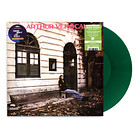
Arthur Verocai HHV Summer Of Jazz Exclusive Half-Speed Mastered Transparent Green Vinyl Edition
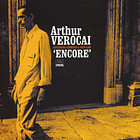
Encore 10th Anniversary Reissue
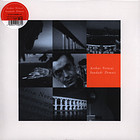
Saudade Demais
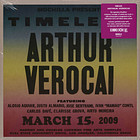
Mochilla Presents Timeless: Arthur Verocai Record Store Day 2021 Edition
Bossa nova, he says, embodies a piece of Brazilian attitude to life. One that he still carries deep inside himself today, as he tells us in the interview. The fact that »Arthur Verocai« is back on the turntables more than 50 years after it was released is no coincidence, but can be attributed to the intuition of the people who dusted off the album and beamed it into the 21st century with the help of sampling.
Smitten with bossa nova
»When I was a child, I lived in a neighbourhood called Urca, right by the sea in Guanbara Bay,« says Verocai, who was born in 1945. From his playroom, he could see the statue of Christ, and the Atlantic Ocean glistened in front of him. During the day, he dribbled through the alleyways with his football, »sometimes all the way to the beach«, he says. On other days, he sat in the living room, listening to his father’s records or the music blaring out of the radio. »There were frequently live music programmes on all day, a big band interpreting different styles of Brazilian music like samba, bolero, baião or foxtrot.« The young Arthur Verocai was intrigued by the scale of the sound blaring out of the tiny transistor radio and it was to become a point of reference – for his own compositions and his musical playing.
Nevertheless, Verocai came to bossa nova, his one true love, through someone else. His sister took guitar lessons in the early ’60s from Carlos Lyra, a Brazilian musician who wrote many of the early bossa nova classics. »I listened sometimes, fell in love with the music and started borrowing my sister’s practice books.« From that day onwards, the »feeling for life« wouldn’t let him go. He picked up the guitar every day, soon started taking lessons for himself. First with another grandee of bossa nova, Roberto Menescal, then with Darcy Vilaverde and Antonio Rebello. Later he also took courses in harmony. Arthur Verocai was not yet 16 years old at the time.
»While I read the lines, I listened to how the notes written on the instruments sounded and how they were grouped. That’s how I learned how this music worked.«
Arthur Verocai
»I already knew then: I wanted to become a musical arranger,« says Verocai. »However, there was not a single course available in the whole of Rio. So I decided to work towards my goal on my own.« The teenager swapped the beach for the library, football for musical scores. He obtained countless ones, all of them by classical composers of bossa nova. »While I read the lines, I listened to how the notes written on the instruments sounded and how they were grouped. That’s how I learned how this music worked.«
While studying civil engineering, his »Plan B« as Verocai once told the Guardian, the young arranger applies to music festivals with his own compositions. At the age of 21, he achieves his first breakthrough – arranging for the Brazilian singer Leny Andrade, a minor star in Brazil at the time. Several labels recognise the musician’s talent. Verocai is then given the opportunity to arrange for famous Brazilian musicians like Jorge Ben, Erasmo Carlos and Ivan Lins. He makes a name for himself behind the scenes and is soon considered a master of the magic between strings and horns. His arrangements are in demand wherever pieces are needed to convey a melancholic feeling of the past.
It’s a Political Thing
This approach sounded like balmy summer nights and rainbow-coloured cocktails at the time – bossa nova had long since become as old as the Sugarloaf Mountain by the beginning of the ’70s in Brazil. Something that would also appeal to Continental, his future label. »The record company people approached me and asked me if I wanted to record an album,« says Verocai. »I was thrilled, but wanted to have full control over the creative process, that was my only demand – besides twelve violins, four violas, various cellos, a trumpet and a saxophone, as well as a trombone, two drums, a piano and a guitar.« To his surprise, Continental accepted. Verocai was suddenly faced not only with the challenge of drumming up an orchestra, but also of squeezing a record out of it.
Today, the composer says: »A good arrangement is what makes the music grow and become bigger.« In 1972, the 27-year-old self-taught musician called on a host of musician friends and companions. His pal Vitor Martins, »a leftist who rebelled against the military dictatorship«, wrote the lyrics. They all resort to metaphorical attacks to circumvent the censorship of the dictatorship. Today, as then, they would be called political »Gstanzln« in the Austrian-Bavarian style. A lulling melody promises the ideal world, while in secret you bore your middle finger into the nostrils of the powerful.
»A good arrangement is what makes the music grow and become bigger.«
Arthur Verocai
The result at the end is »Arthur Verocai«. Ten pieces that transform everyday life into a poem. Ultimately, Verocai neither uses a dissonantly heady nor heavily aggravated punk attitude to convey his message. It is rather sheer greatness that speaks from the combination of different styles and ingenious dilettantism. On the cover that Continental printed for the debut, Verocai can be seen sitting on a wooden stool in front the façade of a run-down house. His spindly legs stretch out into eternity like broken lines. Hands clasped in front of his torso, the arranger signals both calm and distance at the same time. It is a photo that someone might have snapped in passing. A spontaneous shot that conveys the innocence with which Verocai approached the record.
»The album was not a success at all at the time,« says Verocai. The critics ignored his debut, also because the record company flubbed the promo. »However, it wasn’t my intention to sell millions of copies anyway. I just wanted to make my music without anyone from the outside interfering.« Still, it was difficult for a while to understand why it was such a commercial flop. »I was sad because my work was not recognised. By now I know I did what I was supposed to do. And I don’t regret a thing.«
Rediscovered through Sampling
Following this sobering experience, Arthur Verocai’s solo ambitions take a back seat. He continues to compose and arrange with success – among others for greats like Gal Costa, Tim Maia and Azymuth –but he increasingly turns away from the music scene and flirts with a career in advertising. »The money was good, but I knew that no one in that milieu was interested in the music I was making. I guess that’s why I stayed there. I wanted to flee from myself,« Verocai told the Guardian.
Over 30 years after the release of »Arthur Verocai«, US reissue label Luv N’ Haight is re-releasing the debut. A certain faction of the hip-hop scene discovers the record. MF Doom, Ludacris and Little Brother sample songs like »Na Boca Do Sol« – partly without ever paying a cent for it. »I’m still grateful to these people,« Verocai says today. »They made my work known later on.« So well known, in fact, that Arthur Verocai was able to record his album live in Los Angeles in 2009. For the first time since the ’70s – with a 30-piece orchestra. The sleeping giant, who had not shown any sign of life for years, was finally to awaken.




